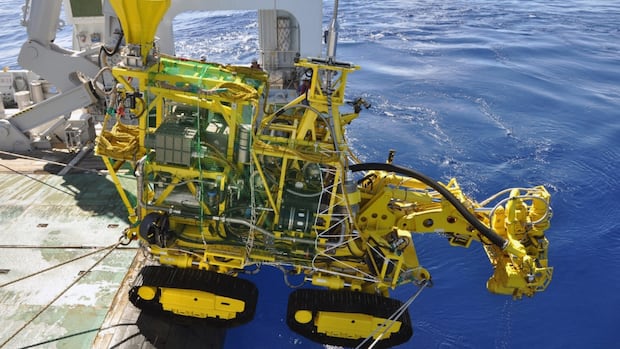A recent executive order from U.S. President Donald Trump to invest in deep sea mining operations could have dire environmental consequences, according to a northern Ontario mining expert.
On April 24, Trump issued an executive order called Unleashing America’s Offshore Critical Minerals and Resources.
Its goal is to promote the development of deep sea mining by streamlining the permitting process and investing in technology to extract critical minerals like nickel, cobalt and manganese from metallic nodules on the ocean floor.
Nadia Mykytczuk, the executive director of the Goodman School of Mines at Laurentian University in Sudbury, said deep sea mining remains unproven and could have harmful impacts on aquatic life.
“Because we’re new at it means that we don’t know what technologies and extraction methods we’re going to use and how those might have massive and potentially irreversible impacts on the environment,” she said.
Mykytczuk said that the critical minerals found in the deep sea are important to advance technologies such as electric vehicles, but added that tradtional terrestrial deposits should be explored further before looking to deep sea mining.
“We’re trying to create a more sustainable future and we simply would be fools to do that at the expense of the environment,” she said.
U.S. desperate for critical minerals
Mark Selby, the CEO of mining company Canada Nickel, said the executive order underscores that the U.S. is in short supply of the critical minerals that are found in the deep sea.
Selby said Chinese companies control much of the world’s supply of nickel – through Indonesian mines – along with cobalt and manganese with mines in different parts of Africa.
After Trump signed the executive order, the Chinese foreign ministry argued it would violate international law since many deep sea mineral deposits are located in international waters.
Selby said he’s not concerned deep sea mining could impact his operations, which include a nickel sulphide deposit north of Timmins, Ont., since the technology remains untested at a commercial scale.
“They’ve done some pilot scale testing, but there’s never been a commercial operation,” he said.
He said it would be expensive to extract critical minerals from under-sea nodules because they would require new technology and are located far from processing plants.
The nodules can also be up to 4,000 metres deep, while the deepest nickel mine in Sudbury, for example, is around 2,000 metres deep.
“We will have to sort of wait and see what the real cost of mining at 4,000 metres underwater is going to look like in the middle of the open ocean,” he said.
